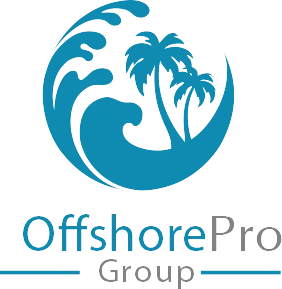Thinking about setting up a business overseas? You’re not alone. Whether it’s for tax planning, asset protection, international trade, or just a bit more flexibility, forming an offshore company is something many people consider, from high-net-worth entrepreneurs and investors to small business owners and global freelancers.
We have been helping people set up offshore companies in many jurisdictions, and are here to help you understand more about it. From choosing the right jurisdiction to registering your company online and opening a remote bank account, we guide you through every step. Ready to get started? Contact us today for a free or paid consultation with an expert and take the first step toward global expansion.

Compare Offshore Company Formation Costs by Jurisdiction
Each package includes full company incorporation and comprehensive document support to help you choose the right jurisdiction for your goals.
| Jurisdiction | Company Type | First Year Fee | Annual Fee | Reg. Time | Service Details |
|---|---|---|---|---|---|
 Belize Belize |
IBC/LLC | From $3,250 | From $2,650 | From 6 days | See more |
 BVI BVI |
IBC | $3,950 | $2,950 | From 8 days | See more |
 Nevis Nevis |
LLC/IBC | From $3,300 | From $2,850 | From 6-9 days | See more |
 Panama Panama |
S.A. | From $3,950 | From $2,950 | 8-16 days | See more |
 Canada (Ontario) Canada (Ontario) |
GP (Partnership) | From €2,950 | From €2,750 | 10-15 days | See more |
 USA (Delaware) USA (Delaware) |
LLC | $3,550 | $1,850 | 6-9 days | See more |
 USA (Wyoming) USA (Wyoming) |
LLC | From $2,750 | $1,850 | 6-9 days | See more |
 Gibraltar Gibraltar |
Ltd | From €6,750 | From €5,750 | Min 5 days | See more |
 Portugal Portugal |
Lda | From €6,750 | From €6,750 | Min 5 days | See more |
 Serbia Serbia |
d.o.o | From €3,850 | From €3,500 | 5-7 days | See more |
 UK (England/Wales) UK (England/Wales) |
Ltd | From €2,650 | From €1,650 | 5-10 days | See more |
 UK (Scotland, SLP) UK (Scotland, SLP) |
SLP | From €2,650 | From €1,650 | 5-10 days | See more |
 Comoros Comoros |
IBC | From €3,300 | From €2,750 | 5-8 days | See more |
 Hong Kong Hong Kong |
Ltd | $2,950 | $1,950 | 5+ days | See more |
 Marshall Islands Marshall Islands |
LLC/IBC | $2,750 | $1,750 | 5-6 days | See more |
 Seychelles Seychelles |
IBC | $3,350 | $1,999 | 5-6 days | See more |
Offshore Company Registration Process: 5 Steps
Setting up an offshore company doesn’t have to be complex. At Offshore Pro Group, we simplify the process with a step-by-step approach tailored to your goals, location, and compliance needs. Here’s how we take you from idea to incorporation.
Step 1: Free Consultation & Strategy
We assess your international business goals and recommend the best offshore company structure and jurisdiction. During this stage, we also evaluate tax implications, compliance requirements, and long-term scalability. We have different packages to suit your needs, and additional services on request in some cases.
Step 2: Choose Your Company Name
We check for availability and reserve your preferred name. If needed, we also help adapt the name to meet local legal requirements or translate it into the jurisdiction’s official language.
Step 3: KYC & Document Submission
For setting up an offshore company, you’ll need to submit:
- Certified copy of passports for all shareholders/directors
- Address proof (e.g., recent utility bill, driver’s license, or bank statement)
- Proof must clearly show your full name and physical address
- Certified copy of a reference letter from a bank
- Detailed business company plan
- Copy of ID and utility bill dated within the last 3 months
We guide you through each document to ensure it’s correctly prepared and accepted by the jurisdiction’s registry.
Step 4: Company Incorporation
We handle document filing and liaise with the registry to complete your offshore company incorporation, and monitor the whole process.
Step 5: Receive Your Corporate Documents & Open Bank Account
Once incorporated, we provide your documents and assist you with bank account setup. We also offer guidance on maintaining your company in good standing post-incorporation.
What You Get with Offshore Company Formation
Forming an offshore company gives you more control over taxes, privacy, and global operations. It’s a smart move for entrepreneurs, investors, and freelancers looking to protect assets, grow internationally, and operate with greater efficiency.
Key Benefits
- Asset Protection: Shield your personal wealth from business risks and liabilities.
- Tax Optimization: Legally reduce your tax burden with low- or zero-tax jurisdictions.
- Privacy: Maintain confidentiality with jurisdictions that don’t disclose ownership.
Simple Management: Less paperwork, fewer filings, and no audits in many cases. - Global Access: Open international bank accounts and operate across borders.
- Wealth Planning: Protect and pass on assets with offshore trusts and structures.
Popular Use Cases
- E-commerce & Trade: Simplify payments, taxes, and global logistics.
- Holding Company: Manage shares, IP, and assets across countries.
- Consulting: Bill international clients and manage currency with ease.
- Wealth Management: Preserve and transfer assets across generations.
Offshore Banking and Financial Services
After forming your offshore company, you almost certainly need a corporate account. We simplify this process, advise you on the best banks and jurisdictions, prepare documentation, connect you with trusted banks, suited to your needs. We also help you navigate KYC and compliance related matters to ensure your company remains in good standing.
If your business handles cryptocurrencies or digital assets, we guide you to crypto-friendly jurisdictions and banks, assist with licensing if needed, and ensure compliance with evolving regulations.
For advanced asset protection and wealth planning, we can help set up trusts alongside your offshore company, offering added privacy and security.
Our support continues after setup, with ongoing help to maintain banking relationships and meet compliance requirements, so your offshore company is always ready for business.
Why Choose Offshore Pro Group for Your Offshore Formation?
When selecting an offshore company formation agent, consider these essential criteria—here’s how Offshore Pro Group delivers on each:
- Proven Track Record: 11+ years in business, 1000+ companies formed, and a 99% client satisfaction rate.
What this means for you: You’re working with a partner trusted by hundreds of clients globally. - Expert Guidance: Access to a network of professionals and up-to-date compliance expertise in 30+ jurisdictions.
You receive tailored advice that ensures your setup is compliant and future-proof. - Transparent Pricing: All-inclusive packages, no hidden fees, and a detailed cost breakdown before you commit.
You always know exactly what you’re paying for—no surprises. - Dedicated Support: A single point of contact, fast response times (e.g., <24 hours), and multi-channel communication (phone, email, portal).
Your questions are answered quickly and you’re never left in the dark. - Data Security & Confidentiality: Industry-standard encryption, strict privacy policies, and compliance with international standards.
Your sensitive information is always protected. - Digital Convenience: Online document submission, real-time status tracking, and a user-friendly client portal.
You enjoy a seamless, paperless experience from anywhere in the world. - Post-Incorporation Support: Ongoing compliance reminders, annual maintenance help, and access to additional services as your business grows.
We’re with you for the long term—not just at setup.
Take the First Step Towards Your International Business
Ready to get started? Simply reach out to our experts for a free, no-obligation consultation. We’ll answer your questions and help you find the best solution for your goals.
- Free Expert Advice: Get clarity on jurisdictions and structures.
- 100% Confidential: Your privacy is our top priority.
- Personalized Solutions: We tailor every setup to your unique needs.
Frequently Asked Questions (FAQ)
What is an offshore company?
At its core, an offshore company is simply a business set up in a country that isn’t where you live or operate primarily. People often choose jurisdictions with low taxes or flexible business laws to make international operations smoother or back-end management easier. The reasons vary: from limiting legal exposure to ensuring privacy or creating a more efficient financial structure. It’s a legitimate setup used by everyone from solo entrepreneurs to larger firms, and when done properly, it can offer real advantages.
Is it legal to own an offshore company?
Yes. However, you must comply with your country’s reporting and tax laws. For example, US citizens are subject to FATCA and must disclose foreign company structures. Always consult a tax advisor to avoid penalties or legal issues.
What are the main advantages of offshore business formation?
Benefits include asset protection, tax optimization, privacy, and access to international business markets. It also allows entrepreneurs to operate in politically or economically stable environments outside their home country.
Which is the best country for offshore company registration?
That depends on your goals. For example, Belize is fast, Marshall Islands is affordable; Nevis offers strong asset protection. Our consultants will recommend the right offshore jurisdiction based on your business structure, risk tolerance, and long-term strategy.
How much does it cost to open an offshore company?
Costs vary, from around 3500 USD for more basic packages, to more for complex set ups with additional services.
How long does the offshore incorporation process take?
From 1–5 days, depending on the jurisdiction and company type. Some countries offer same-day registration, while others require notarized documents or translated paperwork.
Do I need to travel to set up the company?
No. Our process is 100% online. We handle all document preparation and submissions remotely, saving you time and travel expenses.
What is the difference between an IBC and an LLC?
IBCs are typically incorporated for trading or holding assets. LLCs are more flexible, ideal for professional services. The choice depends on the nature of your business, legal preferences, and banking needs.
Can I open an offshore company with a bank account?
Yes. We offer offshore company formation with bank account options. Our strong relationships with international banks improve your chances of approval and streamline the process.
What is a UBO (Ultimate Beneficial Owner)?
The individual who ultimately owns or controls the offshore company. UBOs must often be disclosed to financial institutions and regulators, depending on the jurisdiction and compliance requirements.
Is forming an offshore company legal and how do you ensure compliance?
Yes, completely. However, you must follow key regulations and requirements. Every reputable jurisdiction enforces strict Know Your Customer (KYC) procedures, which means you’ll need to submit documents like certified copies of your passport, proof of address (such as a recent utility bill or bank statement), and sometimes a bank reference letter or a detailed business plan.
These steps are designed to verify your identity, prevent financial crimes, and satisfy international standards set by organizations like the OECD and FATCA. Additionally, ongoing compliance, which varies per jurisdiction, is mandatory in most jurisdictions. Being proactive and thorough with your documentation not only speeds up the incorporation process but also helps you remain in good standing long after your company is set up.
What are the key factors to consider when choosing an offshore jurisdiction?
The best choice for an offshore jurisdiction depends on your business goals, risk tolerance, and planned activities. We recommend evaluating these key factors:
Stability: Choose a politically and economically stable country to protect your assets and operations.
Tax Laws: Analyze the full tax structure, including corporate, income, and capital gains taxes.
Privacy: Evaluate the level of owner privacy, as some jurisdictions do not require your name in public records.
Reputation: Ensure the jurisdiction has a strong international reputation to avoid issues with banks and partners.
Compliance: Look for a balance between business-friendly rules and serious compliance with AML/KYC standards.
Our team has extensive experience helping clients evaluate these factors to select the best offshore jurisdictions.
